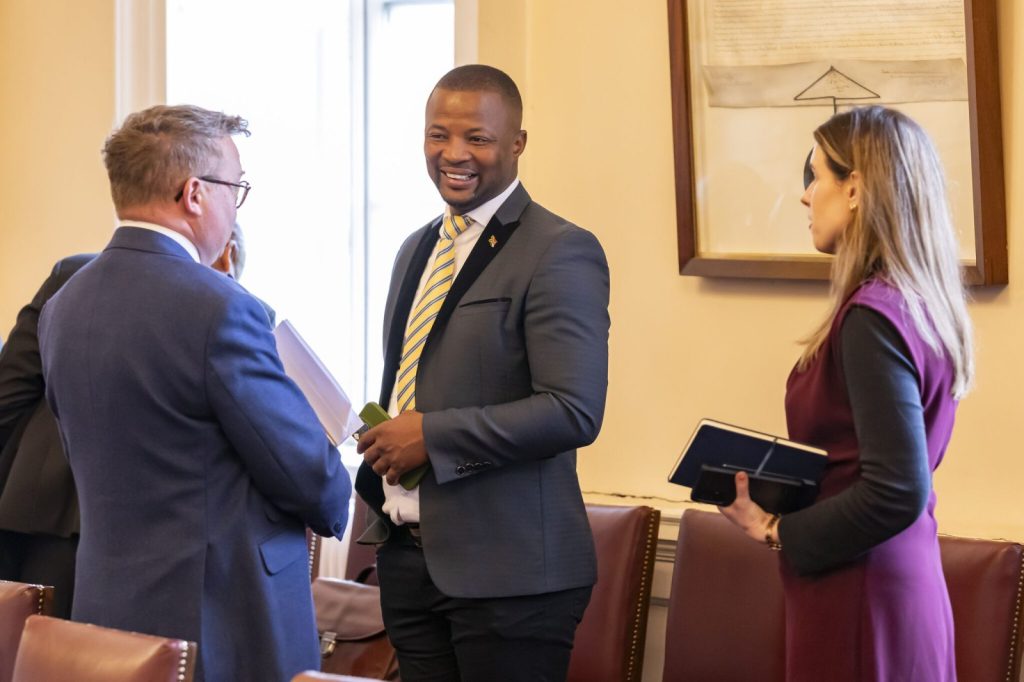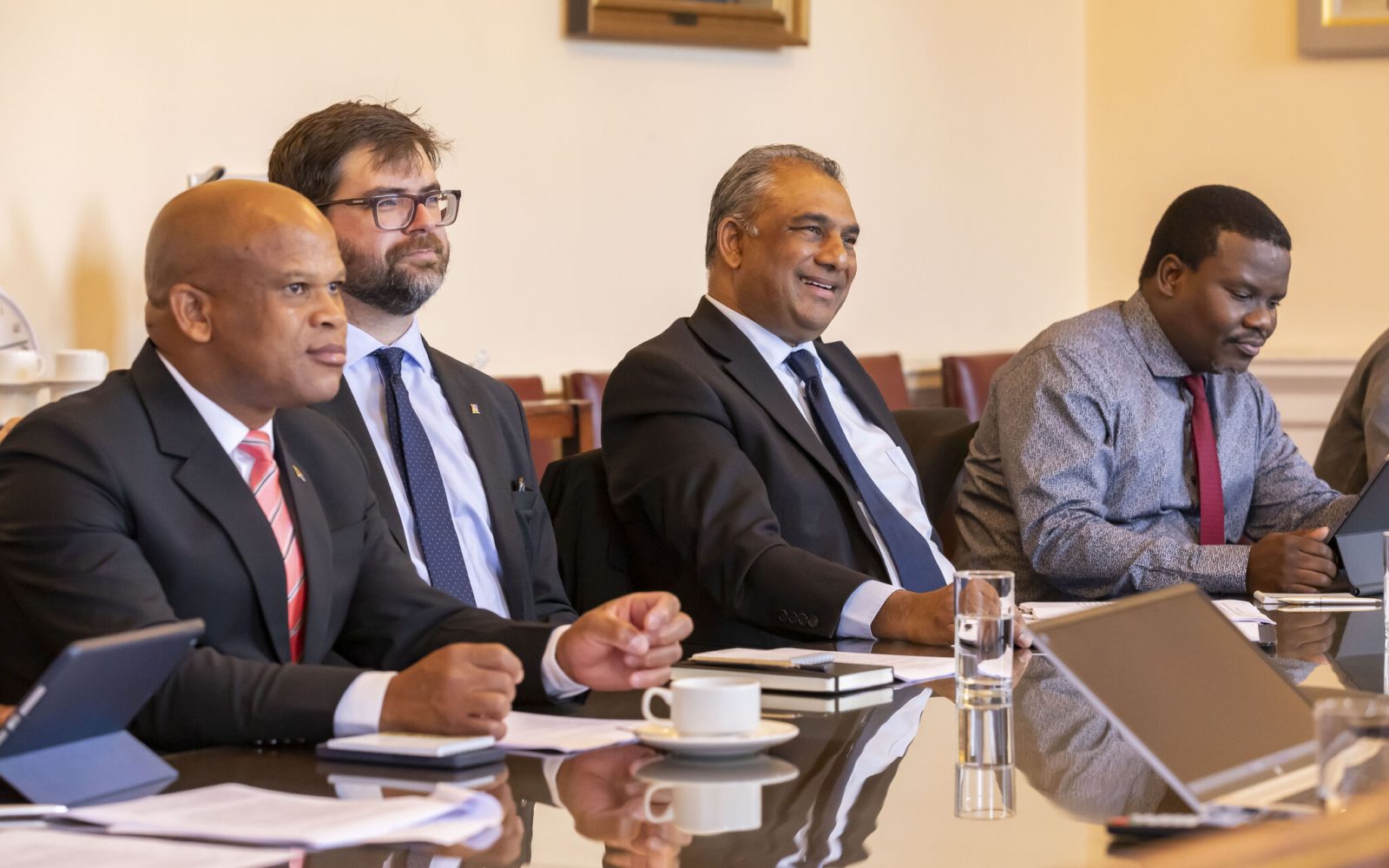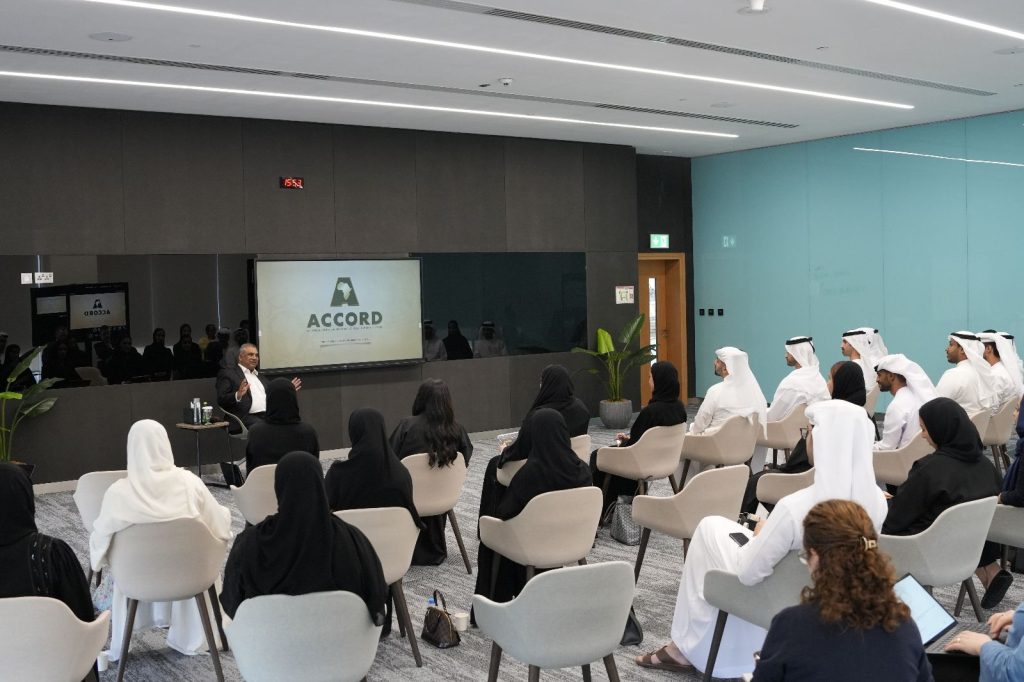ACCORD led a delegation of Chief Whips from South Africa’s National Assembly on an experience-sharing visit to Dublin, Ireland from 24 – 28 March 2025. The purpose of the visit was to provide the Chief Whips with an opportunity to exchange insights and experiences with various stakeholders in Ireland regarding the dynamics of working within and managing coalitions. Ireland has a long history with coalition governments, dating back to the 1950s, with coalitions becoming the norm in 1989. Since then, every government in Ireland has been a coalition, comprising diverse coalitions that involve various political parties. This longstanding tradition has created a political landscape where coalitions are not just expected but also actively chosen by voters, who select parties they believe can effectively collaborate in governance.
The visit was facilitated by ACCORD, with support from the Law Society of Ireland, which organised a comprehensive program for the delegation to engage with various stakeholders in Ireland. Her Excellency Ambassador Nicolette Schreiber and her team at the Diplomatic Mission of the Republic of South Africa’s Embassy warmly received the delegation. The Ambassador provided an overview of Ireland and highlighted some of the bilateral engagements between the two countries. Additionally, the study tour offered the Chief Whips the opportunity to meet key stakeholders, including Minister Neale Richmond TD, the Minister for International Development and Diaspora. Minister Richmond, a member of Ireland’s current coalition government, extended a warm welcome to the delegation and engaged in discussions about coalitions in Ireland.
The delegation also had the chance to receive a briefing on the Irish economy from a senior economist at the Irish Business and Employers Confederation (IBEC). Ireland, as one of the top-performing economies within the European Union, has experienced significant economic success. This success has been attributed to several factors, including its low corporate tax rates, which have attracted major tech companies and pharmaceutical firms, many of which have established their headquarters in Dublin.

The delegation continued its visit by meeting with notable figures, including Eamon Gilmore, an Irish diplomat and former Labour Party politician, who shared his political perspective on coalitions, drawing from his extensive experience in Irish politics and government. The delegation then visited Leinster House, the Irish Parliament, where they met with the Chief Whips from the Labour Party, Fianna Fáil, and Fine Gael. The Chief Whips and their teams warmly welcomed the South African delegation, engaging in discussions about the state of coalitions in Ireland and the lessons that could be applied in South Africa. However, it was emphasised that, while Ireland’s extensive experience with coalitions is valuable, each country’s context is unique, and South Africa cannot simply replicate Ireland’s model.
A key takeaway from these engagements was the importance of consultation within coalition governments for effective functioning. The idea is that no party can make significant decisions without consulting their coalition partners. Additionally, there is a clear program of government that all coalition members must agree on before implementation, and Chief Whips work behind the scenes to ensure that all issues are resolved before the Cabinet meets to discuss the program of government.
Dispute resolution mechanisms are also in place, allowing coalition leaders to resolve differences privately, ensuring that disagreements do not surface publicly, and a unified position is presented.
The sharing experience was supported by the Embassy of Ireland in South Africa and aligns with ACCORD’s strategic objective of strengthening the role of multi-dimensional stakeholders in dealing with complex conflicts.








